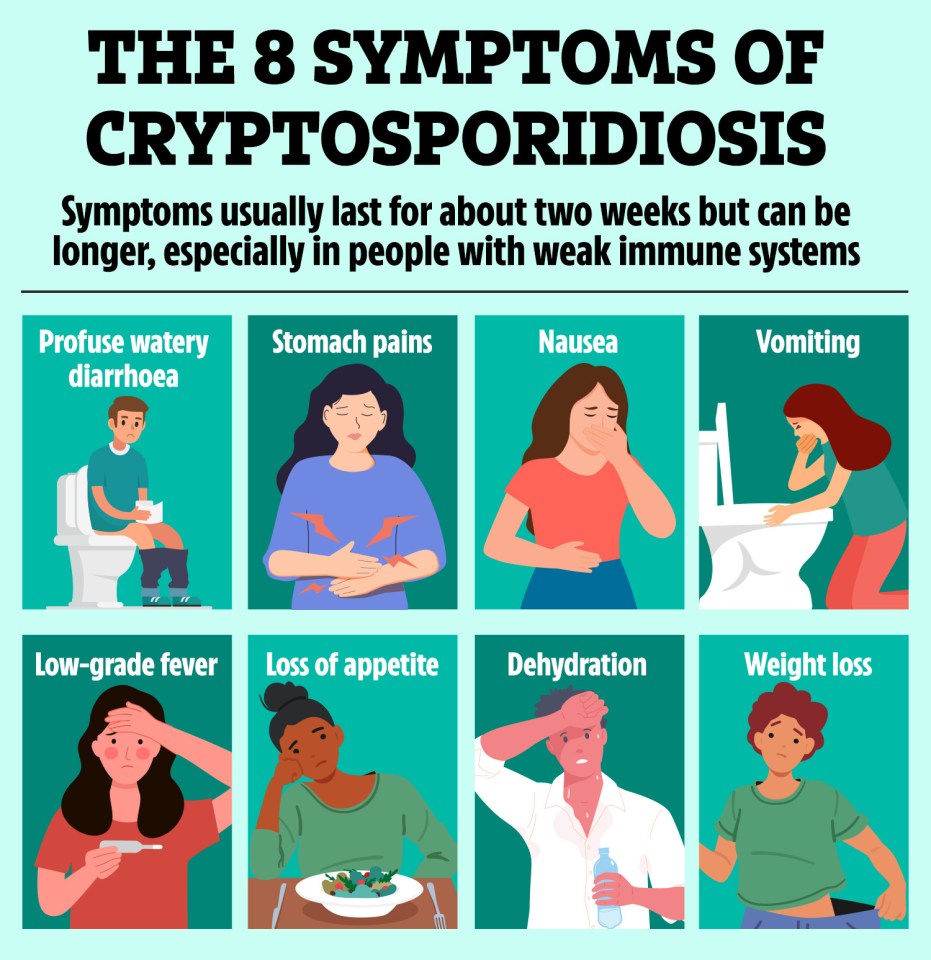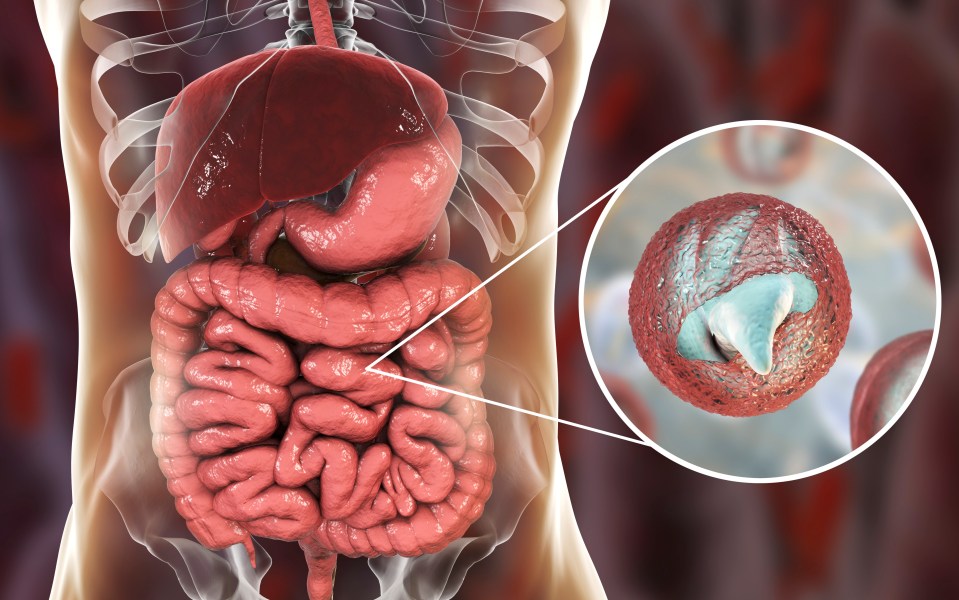AT least 28 people who attended a farm have been struck with violent vomiting and diarrhoea after visiting.
Cowbridge Farm Shop at Marlborough Grange Farm in Cowbridge, Wales, which offers cuddles with lambs and calves for family visits, is being investigated for a potential outbreak of a bug called cryptosporidium.
Cryptosporidium is a highly contagious parasite that causes the infection cryptosporidiosis, which can affect both people and farm animals.
Though anyone can get the bug, it tends to infect children younger than five.
The main symptoms of cryptosporidium infection according to the NHS include:
- Watery diarrhoea
- Stomach pains or cramps
- Nausea
- Vomiting
- Mild fever
- Loss of appetite
- Weight loss
- Dehydration
These symptoms usually begin two to 10 days, and when they do they can last around two weeks.
Sometimes the illness may seem to improve as symptoms ease, but they can return before full recovery.
Due to the bug’s highly infectious nature people with symptoms such as diarrhoea and vomiting are told to stay off work or school until they have been free from these symptoms for at least 48 hours.
People with weak immune systems, like those with cancer or untreated HIV, it can be life-threatening.
Touching infected poo and then putting your unwashed hands near your mouth is a common way of catching cryptosporidios.
This is because the bug lives in the intestines of infected humans and animals and is passed out in their poo.
In a since-deleted Facebook post, the farm team said they had closed the feeding experiences “due to unforeseen circumstances”.
They also apologised to people who had booked, adding a full refund could be obtained.
Just last month health chiefs issued a warning to families planning to visit farms this spring, as a rise in temperatures could also see an increase in “harmful” pathogens.
Petting zoos in particular can expose visitors to gastrointestinal infections, they said.
Public Health Wales (PHW) said the shop had voluntarily stopped the feeding and petting sessions and was cooperating with the investigation.
It is investigating along with Cardiff and Vale health board and Vale of Glamorgan council.
Su Mably, PHW consultant in health protection, said: “We are working closely with partners to investigate these cases and to understand if there is a wider risk to the public.
“We would advise anyone who has visited the farm, particularly those who attended feeding or petting sessions, and who is now experiencing symptoms to contact their GP.”
How can I protect myself against cryptosporidiosis?
The cryptosporidium parasite can be found in the intestines and faeces of infected humans and animals, according to UK Health Security Agency.
It may contaminate lakes, streams and rivers, swimming pools, untreated or poorly treated water and food – like raw milk and fresh produce – as well as objects such as farm gates and outdoor boots and clothing.
“Outbreaks of cryptosporidiosis have been linked to drinking or swimming in contaminated water and contact with infected lambs and calves during visits to open farms,” UKHSA said.
You can get cryptosporidiosis from another person or animal by touching faeces, for example when changing a nappy or petting a lamb and putting your hands near or in your mouth without washing them thoroughly.
You can also get the bug from swimming in or drinking contaminated water.
Occasionally, you can be infected by eating contaminated food, including unwashed or unpeeled vegetables or salads or drinking contaminated raw milk.
Children aged one to five are those most commonly infected with the bug and people with weak immune systems are likely to be more seriously affected.
Sufferers will usually be struck down with mild to severe watery diarrhoea.
Last year the UKHSA issued a warning about the risk of cryptosporidium infection from farm visits.
In May 2024, more than 100 people were also infected by cryptosporidium in Brixham, Devon.
The outbreak was believed to be linked to water contaminated with infected faeces making its way into the drinking supply.
Whole streets in the town were infected, with victims forced to endure days of diarrhoea and agonising stomach cramps, with one sufferer even comparing them to ‘childbirth’.
And just one month earlier, dozens of parents and children fell seriously ill, and some were hospitalised, after visiting Gannow Farm in Worcestershire.














